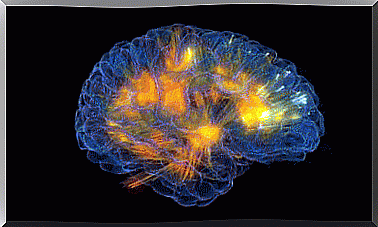Overtraining Makes People More Impulsive

Exercise has many benefits for the body and mind. It improves your fitness level, strengthens your muscles, tones your skin, and in addition it is great for the cardiovascular system and even for your cognitive ability. However, overtraining makes people more impulsive and can have negative consequences.
You can have many different problems when you overtrain with little rest from time to time. First, exercise can become addictive. Other common disorders are muscular dystrophy and dependence on running. In addition, it can lead to muscle damage, heart and respiratory problems, deterioration of the immune system, aging in joints and overtraining syndrome.

Overtraining makes people more impulsive – the syndrome
Sometimes exercise goes a little too far and escalates to overtraining or silence syndrome. The syndrome is similar to burnout and causes a sharp decline in the athlete’s performance, even when at rest. It manifests itself with a number of physical and psychological symptoms.
You can distinguish between physical and mental overtraining just by looking at the symptoms:
Physical overtraining
The physical and physiological symptoms that can manifest with this syndrome are:
- Increased blood pressure and heart rate.
- High body temperature.
- Hypertension.
- Weight loss and appetite.
- Gastrointestinal diseases.
- Muscle pain.
- Vulnerability to infections and reduced immune system.
- Increased cortisol.
- Increase in fatty acids.
- A decrease in iron, hemoglobin and / or glycogen.
- Mental overtraining.
In addition, the following psychological symptoms may occur:
- Mood swings.
- Fatigue and exhaustion.
- Anxiety.
- Irritability.
- Lack of concentration.
- Low self-esteem.
- Loss of libido.
- Sleep problems.
In addition, a recent study found that excessive exercise can lead to increased impulsivity. This fact does not affect this property in a simple way, but it can have very negative consequences for behavior and health.
Impulsivity is a trait that leads to acting quickly, unexpectedly and excessively when faced with internal or external stimuli. Therefore, the person acts without thinking about or assessing the consequences.
Overtraining makes you impulsive: The study
A French research team published a study on the consequences of excessive exercise and impulsivity. Especially how overtraining affects cognitive control.
To do this, they recruited a total of 37 triathletes, which they divided into two groups: the training management and the control group. 19 of them increased their training duration by 40% in each session for three weeks, while the other 19 trained as usual during the same period.
After the experimental weeks of training (of normal or high intensity), the participants agreed to an evaluation session. Researchers shared these sessions as follows:
- For 50 minutes, inside a functional magnetic resonance machine, practitioners performed cognitive control tasks interspersed with three decisions. There they had to choose between two benefits: an immediate and a long-term.
- A 45-minute cycling session with maximum speed to trigger the effect of overloaded training. That is, they looked for signs of fatigue.
- 50 minutes to perform the same cognitive tasks and make decisions as those in the first group.
Thus , the researchers observed the excitability of the cerebral cortex, the performance of specific tasks and the preference for immediate or delayed rewards.
What did they find?
The researchers were interested in the activity of the cerebral cortex related to impulsivity, as well as the results of the thesis with temporary decisions. Cognitive tasks were mainly included to activate the said brain area.
When comparing brain activity after 45 minutes of acute exercise with activity in the first part of the session, they found a reduction in the activity of the lateral prefrontal cortex during decision-making processes, not in cognitive performance.
This means that overtraining has a negative effect on subjective decision-making tasks by consuming resources and preventing them.
They also observed that overtrained triathletes showed a greater preference for rewarding smaller amounts, but earlier in the same task, compared to the control group and with their own level before the overload.

Exercise makes people more impulsive – health implications
These results are relevant in several ways:
- On the one hand , cognitive control versus impulsivity helps people to perform tasks in a directed and conscious way. In sports, less cognitive control leads to a greater sense of security, and pushes the body beyond limits. Not stopping or resting when necessary, or appreciating a more immediate reward, can lead the athlete toward more risky behavior and more injuries.
- On the other hand, the preference for instant gratification is equal to doping. You become “tall” in a way that weakens the body and puts long-term goals in danger. For this reason, it has direct consequences for a person’s physical and psychological health.
In conclusion, as with most activities, accumulated fatigue due to overtraining can have a negative impact, both in the short and long term. Thus, it is important to adopt healthy habits that include learning to make appropriate decisions and not push the body and mind beyond boundaries.









